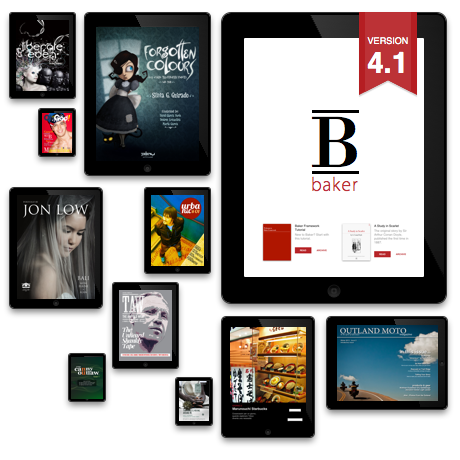When the iPad was announced I’ve seen in front of me one thing that wasn’t possible before, at scale: a revolution in the publishing industry for high quality books. That tablet made possible a market for that creating a widespread standardized platform. Before that, the only thing out there were ebooks made with formats such as epub, mobipocket and similar. Formats born on slow, low-resolution devices from another era.
Tablets could instead support high definition visualization, properly formatted pages and of course the potential of a digital support. Being a designer myself I immediately thought of all these wonderful books out there that now could have been translated to digital.
I was hopeful, but nothing happened.
The iPad was announced on the 27th of January 2010. The only books you could get there were still the old, poorly formatted books as before. Newsstand, Apple’s support for magazines – and magazines only – came out on the 12th of October 2011, 21 months later.
We didn’t wait for that small step forward. After a few months it looked clear to me, Marco and Alessandro that nothing was going to happen. We had a book, called 5×15 in Tokyo that we self published in 2007 through Lulu and during the summer of 2010 we decided to convert it as a digital publication: a proper, well designed digital book on iPad.
The technology choice there was obvious for us. A technology in the digital realm that allowed properly designed pages already existed. We didn’t have to invent anything.
It is HTML.
So, on the 3rd of November 2010 the book “5×15 in Tokyo” appeared on the App Store. On the same day the Baker Framework project was launched with its website and its GitHub account.
It was a success. With just an average amount of tweets and shares, we got lots of people interested, and between them there was Jolie O’Dell that published an article on Mashable that created the first spike of interest.

Together, we already had done lots of open source projects before Baker, but none of them took up like this one. In May 2013, Baker reached version 4.1 thanks to the contribution of a great community:
- More than 50 publications has been made, at least the ones we are aware of
- 1,374 developers are following the project on GitHub
- 256 developers created forks
- We managed more than 900 issues, comments, feature requests and discussions
- We won a nomination as Best Innovative App at SMAU 2011
More importantly, lots of other projects started from Baker and the Hpub standard we openly defined. The first support came in the form of an excellent HTML5 template, Laker Compendium. A few people (1, 2) tried porting it to Android (not an easy task apparently). Some companies took the code and now had a specific offering like Computol or work exclusively as digital publishers with their custom CMS. MagRocket was one of the most integrated and published its own open source server and was providing hosting services. Ajar productions built the InDesign plugin In5 that exports directly to HPub for Baker.
We aren’t alone as well: a few months after the launch another great team here in London launched PugPig a HTML-based digital publishing platform as well. Even better: a company with that at the core. We were proud in meeting them and discovering that we were a source of information for their already excellent work (our issue tracker contains now loads of details). Today they are still running with loads of publications, a proper CMS and infrastructure. While we are sad we weren’t able to agree on the Hpub standard or an evolution of it, they are doing great and we are happy for that.
The Baker eBook Framework is more than a year ahead of a game being played by huge companies with massive resources. Though I see its future as uncertain, it deserves great credit for vision and innovation.
— Dave Bricker (2011)
In other words, not just a project, but a whole ecosystem started with the vision powering Baker. All of this with the marketing budget we had: zero. A true sign of having done something valuable. We had a vision of creating a new way to publish on tablet and Baker demonstrated beyond our hopes its feasibility and the interest for it.
What about the vision today?
We have HPub, but it’s still far from the scale and market share achieved by Kindle and iBooks. We are still far from having a proper industry standard and infrastructure to create high quality books and magazines: even if HTML on the web might just do fine, the ecosystem around the concept of reading a book is still different, and four years since the technical feasibility of this was possible, we are still without a solution.